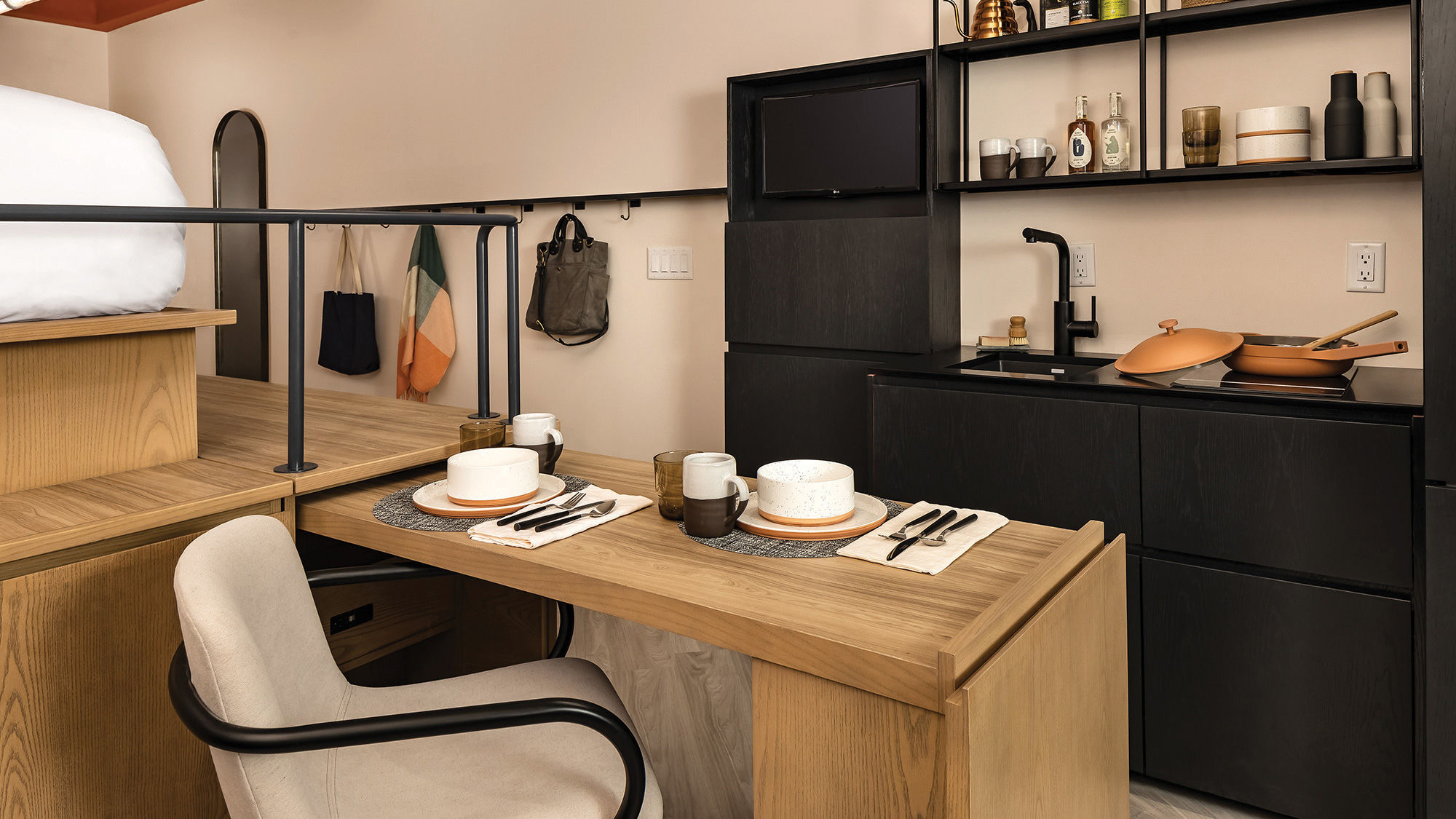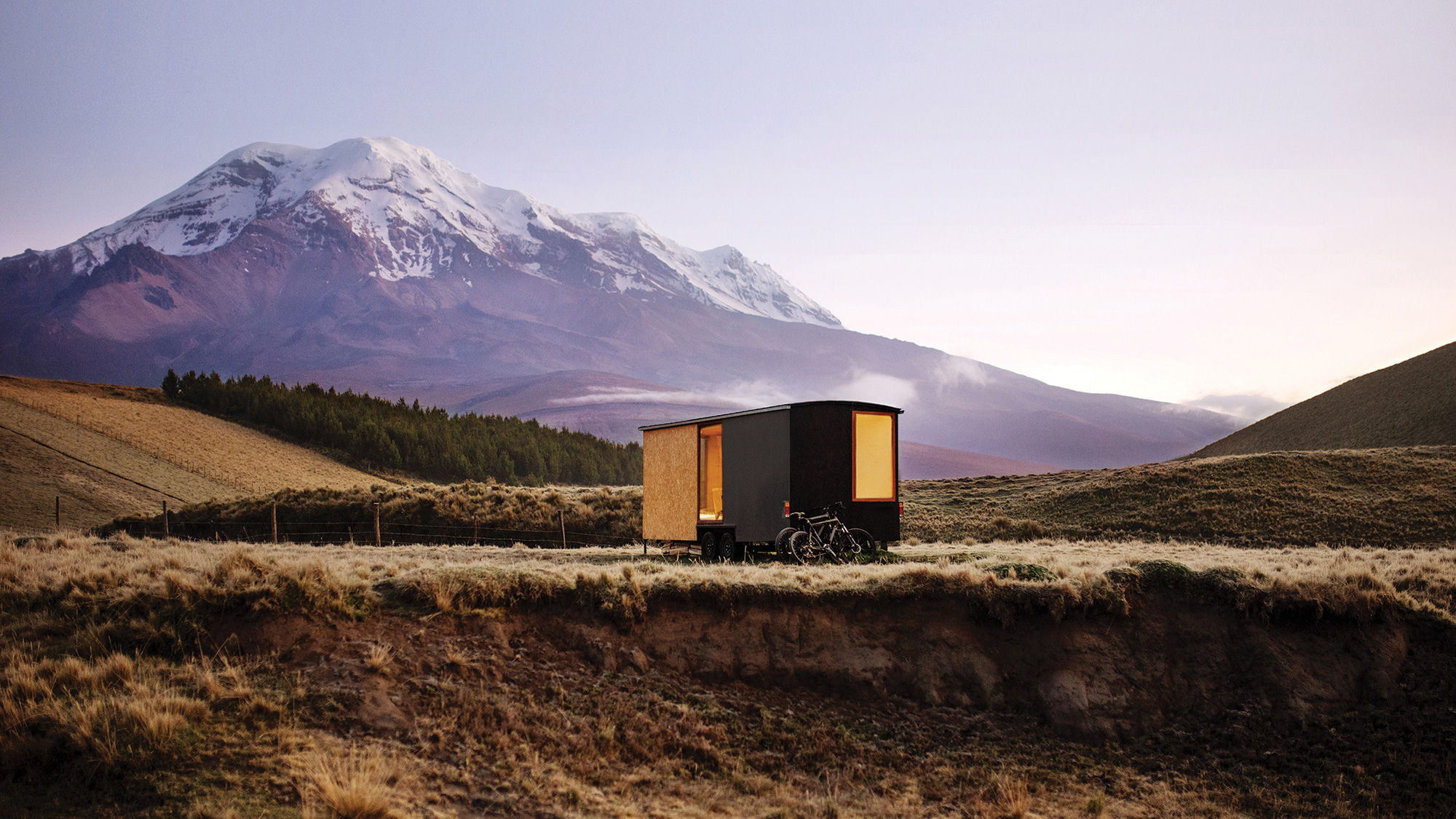
While short-term rentals enjoyed a clear advantage over traditional hotels throughout much of the pandemic, demand for rentals has leveled off and hotels are retaking some lost ground by competing in the space on their own terms.
A recent report from STR and short-term rental analytics company AirDNA showed that impact from the pandemic caused short-term rental market share to spike to its highest level in mid-2020, when the segment ballooned to nearly 17% of all accommodation demand in the U.S.
By January 2022, however, that share had slipped to 12.7% — a level roughly 3% below the trend line that STR and AirDNA had projected based on their tracking of the segment’s growth trajectory between 2018 and early 2020.
“The current linear growth trend from 2021 to present has a slope significantly flatter than that of the pre-pandemic trend,” the report said.
STR and AirDNA said a sudden contraction of short-term rental supply in urban markets hit harder by Covid-related challenges might have been a cause of the flatter slope. Also, a narrowing price gap between short-term rentals and hotels might have been a factor. In suburban U.S. markets, for example, the report found that the average daily rate for short-term rentals surpassed that of hotels this year.
But another potential factor is that hotels have emerged from the pandemic more agile and are giving short-term rentals a run for their money.
Hotel startups make a play
Traditional hospitality stalwarts like Marriott International are making a bigger play for the short-term rental guest. Building on the success of its Homes & Villas by Marriott International vacation rental platform, the company recently launched Apartments by Marriott Bonvoy, a serviced-apartment brand in the upper-upscale and luxury categories.
The accommodations will include a separate living room and bedroom, a full kitchen and an in-unit washer and dryer.
Meanwhile, Catbird, an independent lifestyle extended-stay hotel concept that debuted last year in Denver from real estate developer Sage Hospitality Group, represents a new breed of up-and-coming hospitality players seeking to blend facets of short-term rentals into the hotel experience.
The 165-room property has plenty of traditional hotel elements: a lively lobby with an F&B venue, a rooftop bar, a 24-hour fitness room and housekeeping services. At the same time, each of Catbird’s rooms has a kitchen complete with cookware and “spice pods,” half-teaspoon spice portions. Guests also have access to what’s dubbed the Catbird Playroom, essentially a gear locker with household items — with items like an air fryer or panini press, board games, hiking gear and fishing rods — that guests can borrow free of charge.
“What a lot of guests told us is that they wanted an extended-stay-style hotel, but there wasn’t anything out there that was upscale enough and fit what they were looking for until we came along,” said Courtney Griffith, Catbird’s general manager.
Sage Hospitality principal of development Will Balinbin said the Catbird concept is ripe for replication.
“We do plan to grow this brand,” he said. “We’ll start small, with two or three, but I could easily see 50 or more in the United States.”
Likewise, Rentyl Resorts, a hospitality management company and distribution platform focused on showcasing resorts with residential-style units like villas, townhomes and cottages, is working to promote accommodations that offer what CEO Nick Falcone describes as “the best of both worlds.”
Among Rentyl’s roughly 400 resort partners with residential units are properties like Florida’s Encore Resort at Reunion and Margaritaville Resort Orlando, the Grand Isle Resort & Residences in the Bahamas and Portuguese chain Martinhal Family Hotels & Resorts.
“The market is definitely trending toward home product,” said Falcone. “But I think that more people are now looking for those scenarios where you have a home or that more spacious accommodation within a resort setting.”
Rentyl, which works with travel advisors, has a pipeline of 100 new partner resorts, all with residential-style accommodations, set to soon join its portfolio.
That more traditional hotel and resorts are stepping up their game doesn’t mean the short-term rental category’s biggest players are taking their foot off the gas.
Airbnb isn’t resting on its laurels
Airbnb, which said its recent Q3 was its most profitable quarter ever, is making an aggressive effort to further grow its short-term rental supply, unveiling new efforts designed to encourage more owners to list their properties on Airbnb.
At a media event in Brooklyn on Nov. 14, Airbnb CEO Brian Chesky detailed several of these strategies, including the launch of its Airbnb Setup program and its new tool enabling newbie hosts (owners) to match with experienced Airbnb Superhosts and get one-on-one support via audio, video or messaging.
Also expected to ease concerns for first-time hosts is a significant expansion of Airbnb’s AirCover damage protection program, with coverage going from $1 million to $3 million and extending to protect a host’s vehicles, boats, fine art, jewelry and collectibles.
“Current hosts are making record earnings,” Chesky said. “And the more supply we have, the more guests we have. It’s a network-effect business. The more supply you get, the more demand you get, the more demand you get, the more supply you get.”
Still, Sage Hospitality’s Balinbin believes that short-term rentals are up against stiffer competition than in the past.
“We may see the pendulum start to swing slightly,” he said. “There are points of friction [with short-term rentals], like cleaning fees, the fact you may still have to do some cleaning work yourself, and if something goes wrong, you have to wait for the owner or property manager to come your way. As hoteliers, we’re held to a higher standard. So, we’re fighting back.”
Source: Read Full Article











